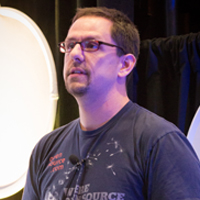There is more to open source than software, hardware and the Creative Commons. Open source can also be seen as a guide for living life that is based on principles that go back to antiquity. Openness and sharing aren’t only for computers, electronics and creative writing.
Jason Hibbets is working to convince local governments to adapt open source ideas in their day to day operations. His book, “The Foundation for an Open Source City,” attempts to be a step by step guide for implementing open source ideas into government policies and solutions, based on his own experiences. He uses Raleigh, North Carolina, where he resides, as his example. He calls it the worlds first open source city. In a way, the small southern capital is his laboratory.

Christine Hall has been a journalist since 1971. In 2001, she began writing a weekly consumer computer column and started covering Linux and FOSS in 2002 after making the switch to GNU/Linux. Follow her on Twitter: @BrideOfLinux









 According to the results of our FOSS Force Desktop Poll, our readers prefer KDE over any other desktop environment by a wide margin. In fact, all other desktops were practically left at the gate.
According to the results of our FOSS Force Desktop Poll, our readers prefer KDE over any other desktop environment by a wide margin. In fact, all other desktops were practically left at the gate.